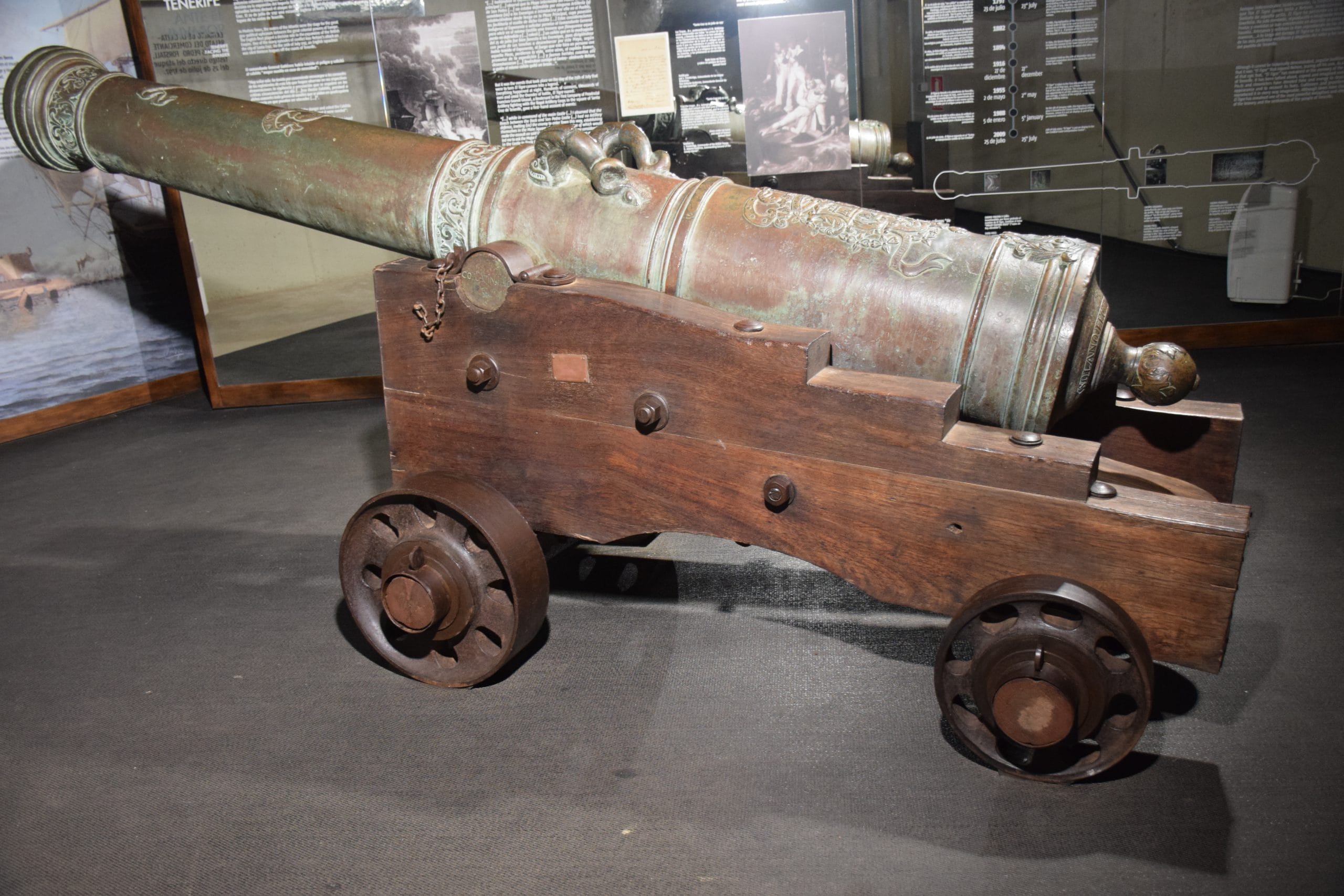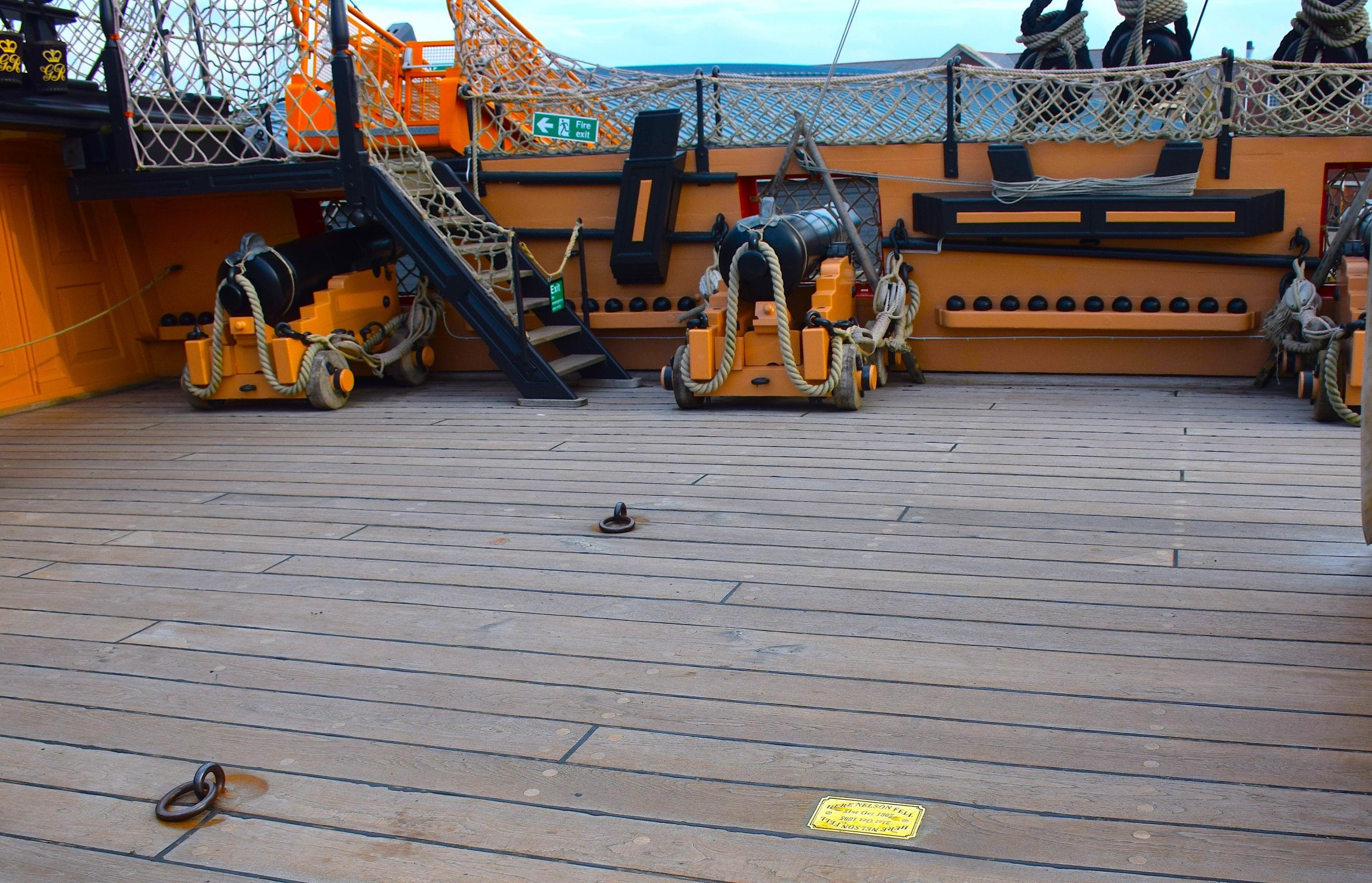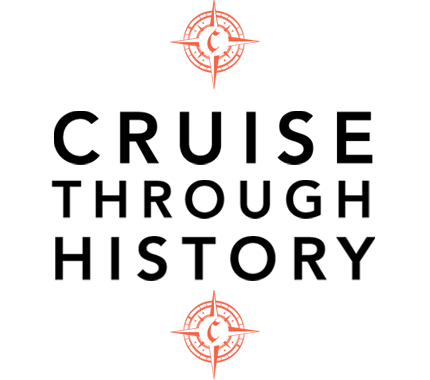British Admiral Horatio Nelson fought his way into immortality as a national hero in 1805, during the Battle of Trafalgar. His name is known throughout the world, although the reasons for his fame are less well known. Certainly, the British victory at the Battle of Trafalgar, under the command of Nelson, decimated Napoleon’s navy, leading to release of Europe from the Napoleonic dynasty, and established Britain as the leader of maritime commerce in the world for the next century. As if that were not enough, there is another reason for the British to feel fond of Nelson.
A statue of Admiral Nelson sits high above Trafalgar Square in London as a constant inspiration to all below who have had a bad day at the office or feel unappreciated in their efforts. Few people would compare their professional accomplishments to the repeated acts of daring and bravery achieved by Nelson in victorious actions at sea. They are, however, entitled to feel a catharsis with the fact that for so long and so often his efforts went unheralded and unrewarded by his superiors and his country.
Numerous biographers of Nelson have the opinion that Nelson fought for fame and glory, not for monetary or other reward. Still, advancement in rank, titles, and a pension were desired by Nelson as a measure of appreciation of his genius in battle and the importance of his service to his country. He had a wife and a lady friend to support. As Nelson gave an eye, an arm, and his general health in his complete devotion to service, it is surprising that official recognition was so long in coming.
When Nelson wanted battle assignments, he was posted to securing shipping routes. When he sailed into Nicaragua and overwhelmed a Spanish fort, displaying bravery and battle acumen, he also suffered from tropical disease that would plague him the rest of his life. Harassing cargo ships of non-treaty nations was not a career- enhancing assignment.
In February 1793, France declared war on England. Nelson was called to battle. He orchestrated the British victory over the French in the siege of Corsica. To do so, Nelson used his personal relationship with King Ferdinand in Naples to receive the king’s ground troops to support the British naval effort, valiantly led a fleet of ships in battle, and lost an eye.
In March 1795, Nelson engaged larger and more numerous French ships off the coast of Cannes. As he sought to ram the largest of the French ships he kept up the cannon fire even as his ship was under heavy fire. In a dead face-off, the French ship shot too high and Nelson was able to hit squarely on the mark. As the French ship listed to its side, Nelson sailed away. In another battle, Nelson found himself being shot from both sides. Then he rammed one French ship as the other came close enough to Nelson’s ship that he could order his sailors to board both ships. Nelson led the charge over the rail and the taking of both French ships.
When reports of the battles were written, Admiral Hood credited himself with great leadership. Nelson was mentioned in the reports only in passing. Enraged, Nelson pouted and protested the lack of credit and financial reward, which he felt was due. His superiors and Parliament were unmoved.
Under a new commander, Admiral Jervis, Nelson had an opportunity to show valor in the Battle of Cape St. Vincent on February 14, 1797. During the battle Jervis depended on his lead ship to tack into the Spanish line. The lead ship took no action, leaving Jervis to become quickly surrounded by Spanish men-of-war. Nelson quickly saw what was occurring. He broke from the line and headed directly into the enemy line. Jervis signaled for the other ships to follow Nelson.
Nelson was under such heavy fire that his ship was almost dead in the water. As two Spanish ships came close to capturing Nelson’s ship, the two Spanish ships collided. Nelson led the boarding party to take one of the ships, then the other. By the end of the day both Spanish ships surrendered to Nelson.
Admiral Jervis was glowing in his reports to the home office, omitting the names of any captains who contributed to the victory. Nelson was so offended that he wrote his own account of the battle and sent it off to the press. The Nelson version was so popular that it became the accepted version in the press and with the public.
The self-promotion of Nelson had some effect. Jervis was made an Earle and given a substantial pension. Nelson was made a Knight of the Order of Bath and a Rear Admiral.

The cannon in Tenerife that shot Nelson in the arm, in a museum to the battle where the Spanish repelled the British.
In the four years, 1793 to 1797, Nelson was involved in 120 actions at sea. He captured seven sail-of-the-line, six frigates, four corvettes, eleven privateer ships, and fifty merchant sea vessels. He lost an eye and later an arm in a landing at Tenerife. After Tenerife, Nelson’s pay was doubled to just over £700.
Meanwhile Napoleon was building up his forces in the Mediterranean. The timing was delicate for the British as the treasury was low on funds with which to mount a strong adversarial action. With so much at stake, the British navy called upon Nelson to seek out a confrontation with Napoleon at sea and destroy his fleet.
On August 1, 1798, after two months of chasing the French fleet, Nelson was engaged in the Battle of the Nile. Nelson encountered the French fleet while it was moored in Alexandria, in a line of ships that stretched for a mile and a half. The French opted to stay in position, as their crews were on shore. The French had the shallows of the bay behind them, so they counted on firing from one side.
Nelson carefully calculated his attack. He divided his force in two. Half the ships would overwhelm the front of the French line as they made their way down both sides of the row. The other half of the British ships would head to the middle of the French line and work their way to the end of the line. It was a daring plan.
The attack started well for the British. The first French ship in the line lost its mast in the first ten minutes of fighting. Four more French ships were lost shortly thereafter. In the middle of the row of ships the fighting favored the French. The massive French warship, L’Orient, dominated the middle of the row.
At 9:10 that evening the L’Orient caught fire. At 10 pm it blew apart. The fighting continued to noon the next day. When the firing stopped, eleven of thirteen French ships were captured, sunk, or burned. The strength of the French navy was compromised. Not one British ship was lost.
The Battle of the Nile was a major strategic victory for the British. Nelson was hailed as a hero in London. At last he achieved his icon status.
The British East India Company gave a gift to Nelson of £10,000. Parliament extended its thanks, but was conflicted about a financial award. Titles and pensions did not skip rank and as Nelson had received little in the past, his present award was kept in check. He was made Baron Nelson of the Nile and Burnham Thorpe, his home parish. His pension was set at £1000, about a third of that awarded to men of higher status and lesser accomplishment.
In 1799, after being passed over for command of the navy in the eastern Mediterranean, Nelson requested leave from the British navy. He was depressed. Nelson, then age forty-one, looked old. He had no upper teeth. There was a film over his remaining good eye. He was in constant pain from a head wound.
On May 18, 1803, England declared war on France. Nelson was made commander-in-chief of the Mediterranean fleet. The British fleet was divided into two parts. Nelson was given the less lucrative area of the Mediterranean to patrol for French ships, while Sir John Orde was given responsibility for the lucrative areas of the West Indies, where the Spanish were aiding the French with supplies.
As commander, much of Nelson’s time was devoted to finding food for the men. Desertion was a problem, as were the petitions of wealthy parents looking for promotions for their sons. Nelson did not sell promotions and thus did not profit from his position. He did prove to be an able administrator.
Once again, Napoleon presented a significant danger to Britain and its lines of commerce. The French planned to break from the Mediterranean, strike out for the West Indies, give the British fleet cause to follow, and then double back to attack England in the English Channel. But for Nelson, their plan may have succeeded. As Nelson headed for his ship the Victory on a September morning in 1805, crowds followed him all the way to the pier. They gave him a heroes’ parade.
The two fleets intersected off the Trafalgar coast of southwest Spain. Nelson turned his ship eastward directly into the French line. The other British ships fanned out to turn into the French column along their line.
The Victory soon found itself between two French ships. Nelson’s captains were fully engaged and unable to render him aid. The battle became disorganized. The sea was full of ships firing on ships at close range. Through the smoke and the din, Nelson stood on the deck of the Victory to survey any opportunity that could arise.
A cannon ball hit the deck of the Victory. Nelson shouted out as he fell to his knees. He thought had been struck by the ball. When carried below deck to his cabin Nelson was calm, but could feel nothing in the lower part of his body. He was bleeding internally, possibly from a sniper’s gunfire.

The deck of the ship Victory, where there is a marker for the exact spot where Admiral Nelson stood when shot on Oct. 21, 1805.
For the next three and a half hours Nelson gave orders to the crew based on reports from the deck. He was told that the battle was ending and the British had won. The British seized nineteen French ships. The French navy was decimated. As the cannon balls stopped, Nelson died.
The defeat of the French at Trafalgar eliminated the threat of an invasion of England. The victory rendered the British the supreme power on the seas of the world, a position of dominance that held for the next 100 years. Nelson received the fame he always sought. It has been a lasting fame.
The financial reward that eluded Nelson throughout his life was paid to his brother. William Nelson received £99,000 as compensation from the battle and a further £5,000 pounds a year to support the title of Earl Nelson of Trafalgar. Nelson’s wife received a widow’s pension of £2,000 a year. She died in 1831.
Admiral Nelson was not merely a genius in naval battle strategy. He continues to serve as an inspiration to those having a bad day at the office, in school, or in general. Nelson aged early and died young. His official rewards came posthumously to those who had little to do with his success. For those who seek more modest recognition, in sweet increments, take heart. Be inspired by the endearing Admiral.






